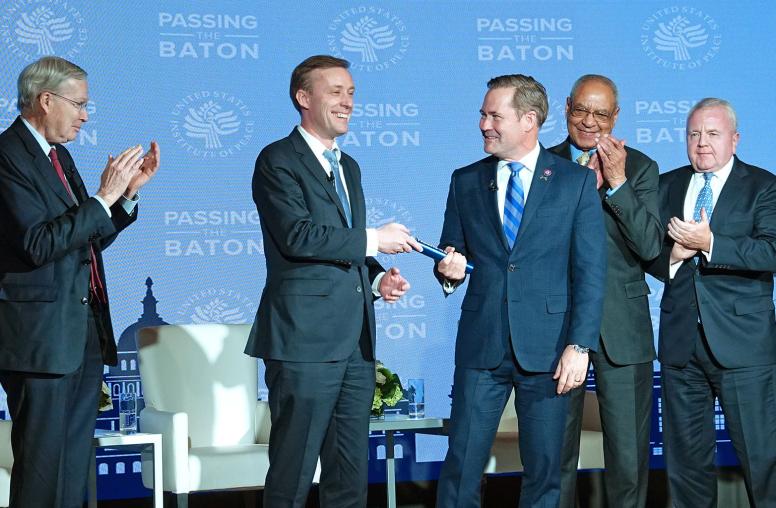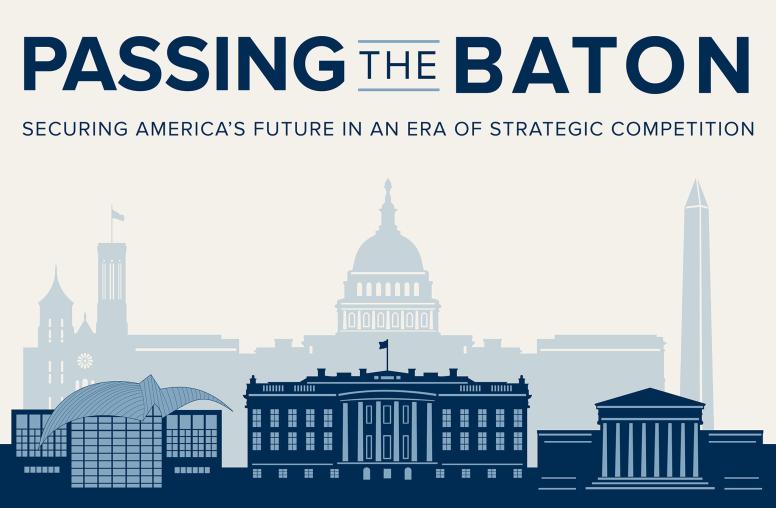USIP Experts React to Presidential Speech on the Middle East
Experts from the United States Institute of Peace closely followed President Barack Obama's speech on the Arab Spring and Middle East peace early today.
For Immediate Release, May 19, 2011
Contact: Allison Sturma, 202-429-4725
(Washington) - Experts from the United States Institute of Peace closely followed President Barack Obama's speech on the Arab Spring and Middle East peace early today.
Manal Omar, director of Iraq programs and regional expert commented: "Obama articulated a clear position in support of the reforms. For people in the streets across the Middle East, Obama’s speech is a demonstration of a political will to discuss the difficult issues straightforward. Taking note of the shia concerns in Bahrain, tackling the issue of the emerging sectarianism, identifying the rights of the marginalized groups (minorities and women)and mentioning Palestinian occupation and the right of return directly address the region’s concerns of a US policy that has been accused of double standards. "
Qamar-ul Huda, senior program officer with the Religion and Peacemaking Center of Innovation, added: “President Obama’s unambiguous support for democratic reform, youth, religious tolerance, gender equality, and specific economic opportunities for the Middle East & North African region will be enthusiastically received. In particular, I think youth involved with the uprisings wanted to hear the President’s recognition of their achievements and needed to confirm America’s long-term support for democracy and justice.”
However, Senior Fellow Robin Wright was more cautious: "The Arab world is likely to be somewhat disappointed with President Obama’s speech. On the issues that now consume their lives, he offered lofty principles but little substantively new in terms of concrete action or admonitions to autocrats. The president also did not substantively close the gap in U.S. policy—what Washington is saying or doing—on protests over the same issues in Libya, Syria and notably Bahrain."
Scott Lasensky, USIP senior program officer, focused on the Arab-Israeli conflict: "The US is now formally on record, in no uncertain terms, advocating for an initial deal based on the 1967 lines, with land swaps, and agreed security provisions. The Administration had danced around that formulation for some time, but typically had framed it as an aspiration of the parties---rather than U.S. policy. The president was pretty blunt: 'Palestinians should know the territorial outlines of their state; Israelis should know that their basic security concerns will be met.' Though he was less clear about what happens next."
USIP experts are available for additional comment:
Manal Omar, director of Iraq programs
Office: 202-429-1981
E-mail: momar@usip.org
Qamar-ul Huda, senior program officer
Office: 202-429-4707
E-mail: qhuda@usip.org
Robin Wright, senior fellow
Office: 202-429-3879
E-mail: rwright@usip.org
Scott Lasensky, senior program officer
Office: 202-429-3839
E-mail: slasensky@usip.org
###



